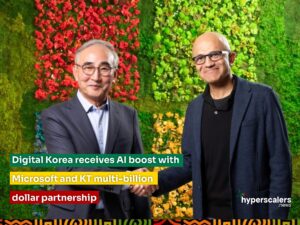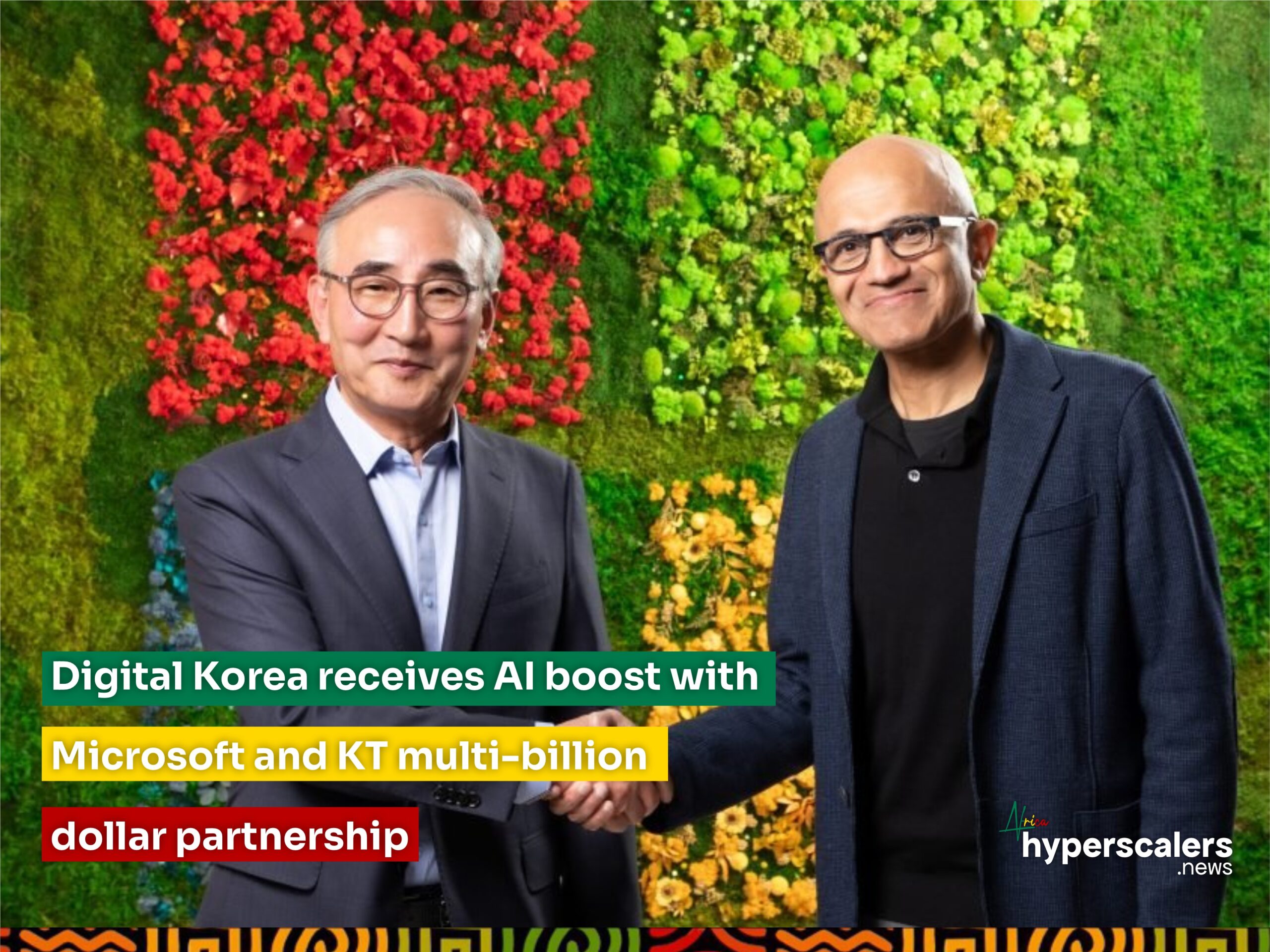The world’s most connected nation, South Korea is leaping into artificial intelligence with a partnership between one of its leading telecommunications companies, KT Corporation, and global software company, Microsoft. The two operators have entered a five-year AI partnership, aimed at revolutionizing South Korea’s tech ecosystem. Valued at billions, the collaboration will see KT invest $450 million in Microsoft’s infrastructure while advancing AI, cloud services, and IT capabilities.
Korean ChatGPT
Together, they plan to develop a locally-relevant and customized version of OpenAI’s GPT-4o, tailored for Korean language and culture, and build secure cloud services for industries like finance and government.
The deal includes the creation of an AI-specialized service company and a co-innovation center, both of which will accelerate AI adoption and innovation across sectors. Microsoft will also upskill 19,000 employees in AI and cloud technologies, while training 5,800 AI experts to spearhead digital transformation efforts.
KT CEO Young-Shub Kim praised the partnership for expanding Korea’s AI foundation, stating that it will drive “transformative innovation across industries and daily life.” Microsoft’s CEO, Satya Nadella, highlighted the collaboration’s potential to shape AI experiences for millions of Korean consumers, marking a new era for AI in South Korea.
Building on a previous agreement from June 2024, this latest partnership reinforces both companies’ commitment to fostering AI and cloud services. Microsoft’s existing cloud infrastructure in South Korea, including its regions in Seoul and Busan, provides a strong foundation for this ambitious AI venture.
An eye on the future
With KT and Microsoft joining forces, this partnership not only strengthens South Korea’s AI industry but also positions both companies as global leaders in the rapidly evolving AI and cloud space. It marks a pivotal moment in digital transformation, both in South Korea and beyond.
As the number one ICT nation in the world, South Korea’s internet penetration stood at 97.2 percent early this year, with average mobile connectivity of 136MBPS and fixed connectivity of 123MBPS.

Opportunities for Africa
South Korea emerged as an ICT leader through strategic government policies, heavy investment in education, and a focus on innovation and research and development. The government played a pivotal role by establishing a robust infrastructure, promoting public-private partnerships, and fostering a tech-friendly regulatory environment. This was complemented by a skilled workforce, a culture of entrepreneurship, and an emphasis on global competitiveness. For Africa, the key lessons include the importance of strong governmental support, investment in education and skills development, and the creation of conducive environments for collaboration and innovation among industry stakeholders to harness the potential of technology for economic growth.





